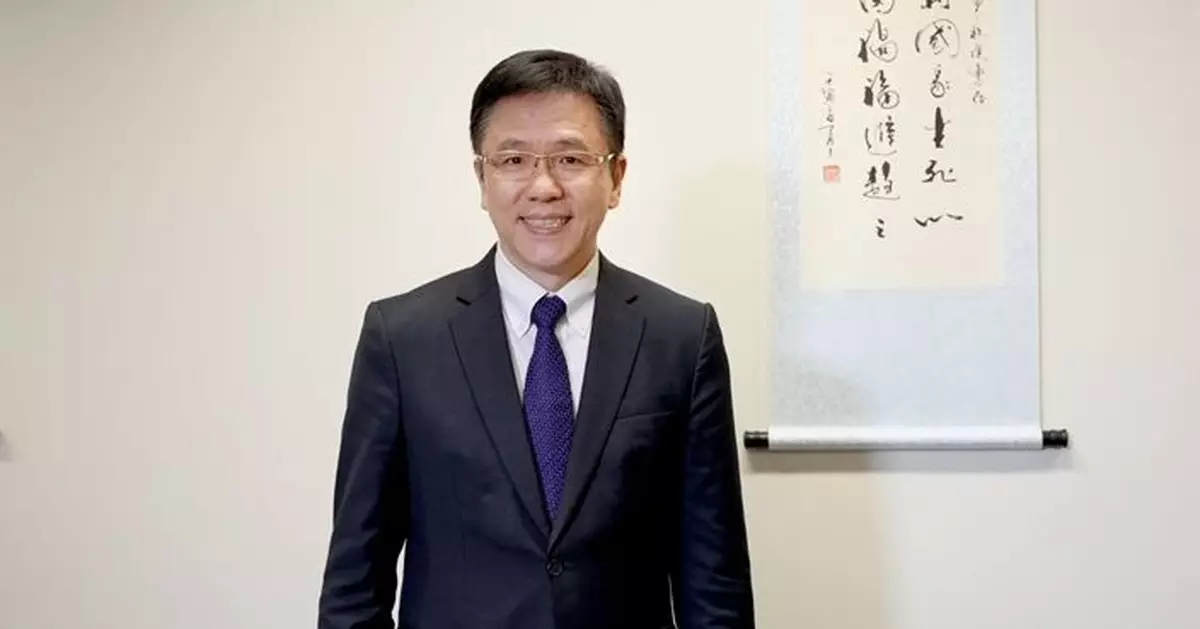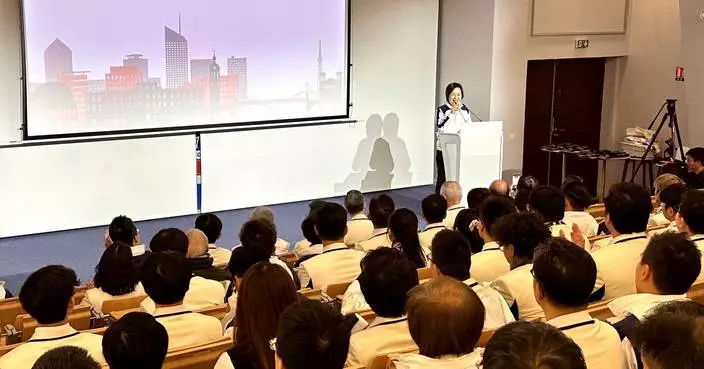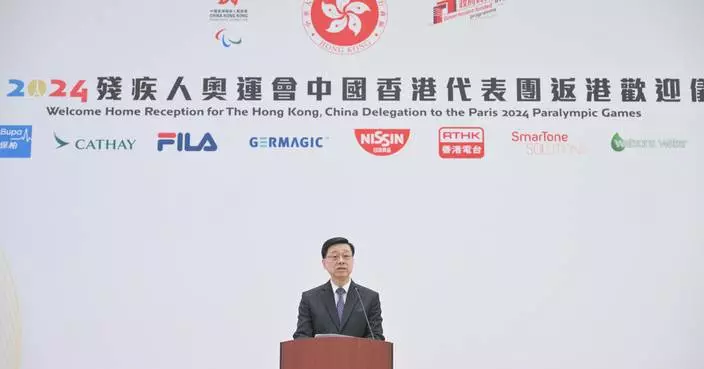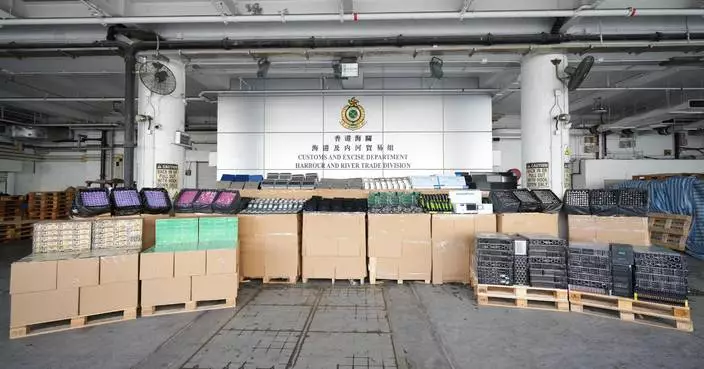SITI to attend opening ceremony of 2024 China Cybersecurity Week in Guangzhou
The Secretary for Innovation, Technology and Industry, Professor Sun Dong, will depart for Nansha, Guangzhou, tomorrow (September 7) to attend the opening ceremony of 2024 China Cybersecurity Week and deliver an opening speech.
The 2024 China Cybersecurity Week, with the theme "Cybersecurity for the People, Cybersecurity relies on the People", is hosted by the Cyberspace Administration of China. Guangzhou is the main venue for this year's Cybersecurity Week and will host a series of activities, including the opening ceremony, the Cybersecurity Technology Summit cum Guangdong-Hong Kong-Macao Greater Bay Area Cybersecurity Conference, and the Cybersecurity Expo, to focus on the topic of jointly fostering a safer defense line for cybersecurity. Experts and representatives of relevant government departments, higher-education institutions and enterprises from the Mainland, the Government of Hong Kong Special Administrative Region (SAR) and the Government of the Macao SAR will be invited to give keynote speeches.
The Commissioner for Digital Policy, Mr Tony Wong, will also attend the activities of Cybersecurity Week.
Professor Sun will return to Hong Kong in the afternoon on September 8. During his absence, the Under Secretary for Innovation, Technology and Industry, Ms Lillian Cheong, will be the Acting Secretary for Innovation, Technology and Industry.
Update on cases of Legionnaires' disease
The Centre for Health Protection (CHP) of the Department of Health today (September 16) reported the latest number of cases of Legionnaires' disease (LD), and stressed the importance of using and maintaining properly designed man-made water systems, adding that susceptible groups should strictly observe relevant precautions.
From September 8 to 14, the CHP recorded three community-acquired LD cases:
A female patient, aged 60 with underlying illnesses, who lives in Tai Po District;
A male patient, aged 66 with underlying illnesses, who lives in Shatin District; and
A male patient, aged 68 with good past health, who lives in Yau Tsim Mong District.
"Epidemiological investigations are ongoing to identify potential sources of infection, high-risk exposure and clusters, if any," a spokesman for the CHP said.
As of September 14, 81 LD cases had been recorded this year. In 2023 and 2022, there were 121 and 80 cases respectively.
"Men, people aged over 50, smokers, alcoholics and persons with weakened immunity are more susceptible to LD. Some situations may also increase the risk of infection, including poor maintenance of water systems; living in areas with old water systems, cooling towers or fountains; using electric water heaters, whirlpools and spas or hot water spring spas; and recent stays in hotels or vessels," the spokesman said.
Legionellae are found in various environmental settings and grow well in warm water (20 to 45 degrees Celsius). They can be found in aqueous environments such as water tanks, hot and cold water systems, cooling towers, whirlpools and spas, water fountains and home apparatus that support breathing. People may become infected when they breathe in contaminated droplets (aerosols) and mist generated by artificial water systems, or when handling garden soil, compost and potting mixes.
Immunocompromised persons should:
Use sterile or boiled water for drinking, tooth brushing and mouth rinsing;
Avoid using humidifiers, or other mist- or aerosol-generating devices; and
If using humidifiers, or other mist- or aerosol-generating devices, fill the water tank with only sterile or cooled freshly boiled water, and not water directly from the tap. Also, clean and maintain humidifiers/devices regularly according to manufacturers' instructions. Never leave stagnant water in a humidifier/device. Empty the water tank, wipe all surfaces dry, and change the water daily.
The public should observe the health advice below:
Observe personal hygiene;
Do not smoke and avoid alcohol consumption;
Strainers in water taps and shower heads should be inspected, cleaned, descaled and disinfected regularly or at a frequency recommended by the manufacturer;
If a fresh-water plumbing system is properly maintained, it is not necessary to install domestic water filters. Use of water filters is not encouraged as clogging occurs easily, which can promote growth of micro-organisms. In case water filters are used, the pore size should be 0.2 micrometres (µm) and the filter needs to be changed periodically according to the manufacturer's recommendations;
Drain and clean water tanks of buildings at least quarterly;
Drain or purge for at least one minute infrequently used water outlets (e.g. water taps, shower heads and hot water outlets) and stagnant points of the pipework weekly or before use;
Seek and follow doctors' professional advice regarding the use and maintenance of home respiratory devices and use only sterile water (not distilled or tap water) to clean and fill the reservoir. Clean and maintain the device regularly according to the manufacturer's instructions. After cleaning/disinfection, rinse the device with sterile water, cooled freshly boiled water or water filtered with 0.2 µm filters. Never leave stagnant water in the device. Empty the water tank, keep all surfaces dry, and change the water daily; and
When handling garden soil, compost and potting mixes:
Wear gloves and a face mask;
Water gardens and compost gently using low pressure;
Open composted potting mixes slowly and make sure the opening is directed away from the face;
Wet the soil to reduce dust when potting plants; and
Avoid working in poorly ventilated places such as enclosed greenhouses.
The public may visit the CHP'sLD page, theCode of Practice for Prevention of LDand theHousekeeping Guidelines for Cold and Hot Water Systems for Building Managementof the Prevention of LD Committee, and the CHP'srisk-based strategyfor prevention and control of LD.

Source: AI-generated images







